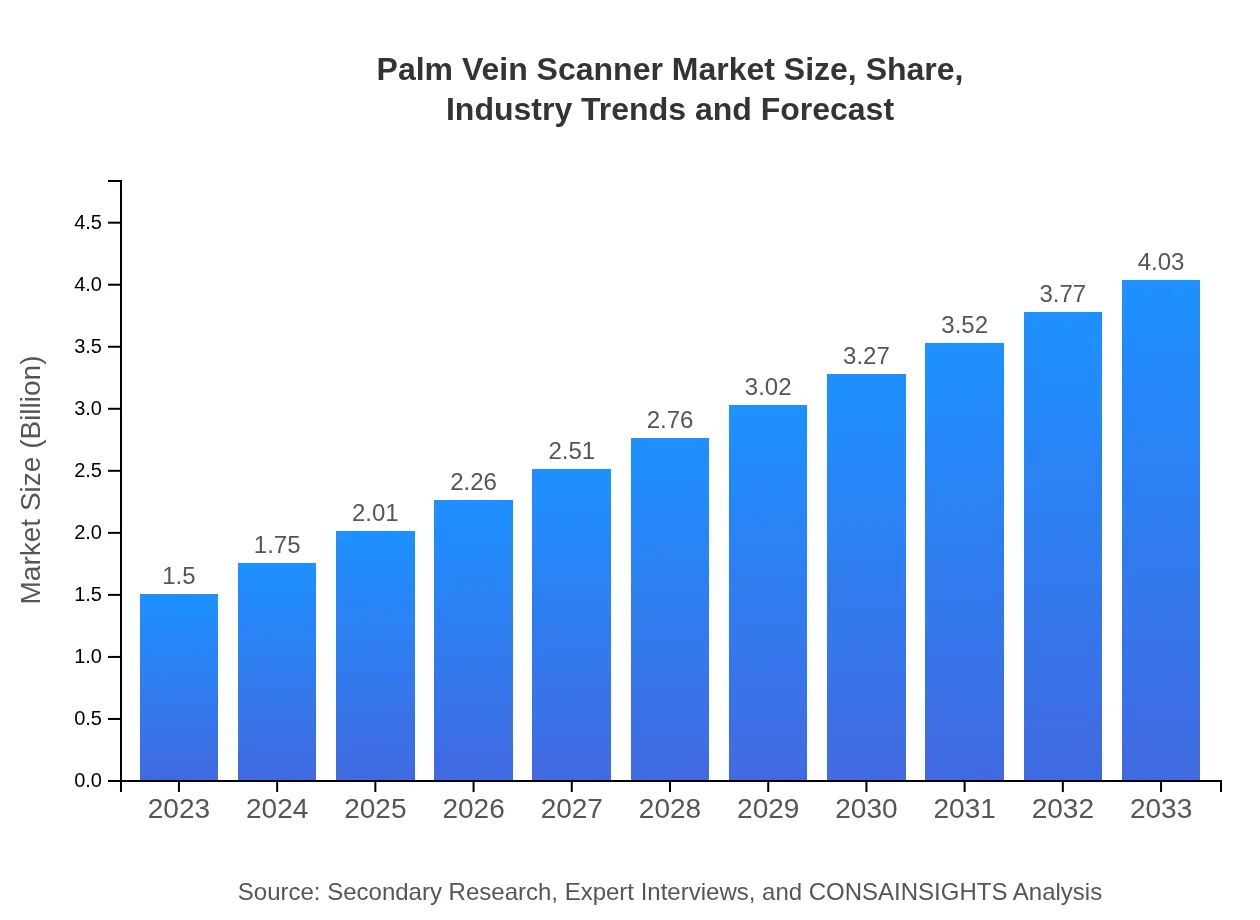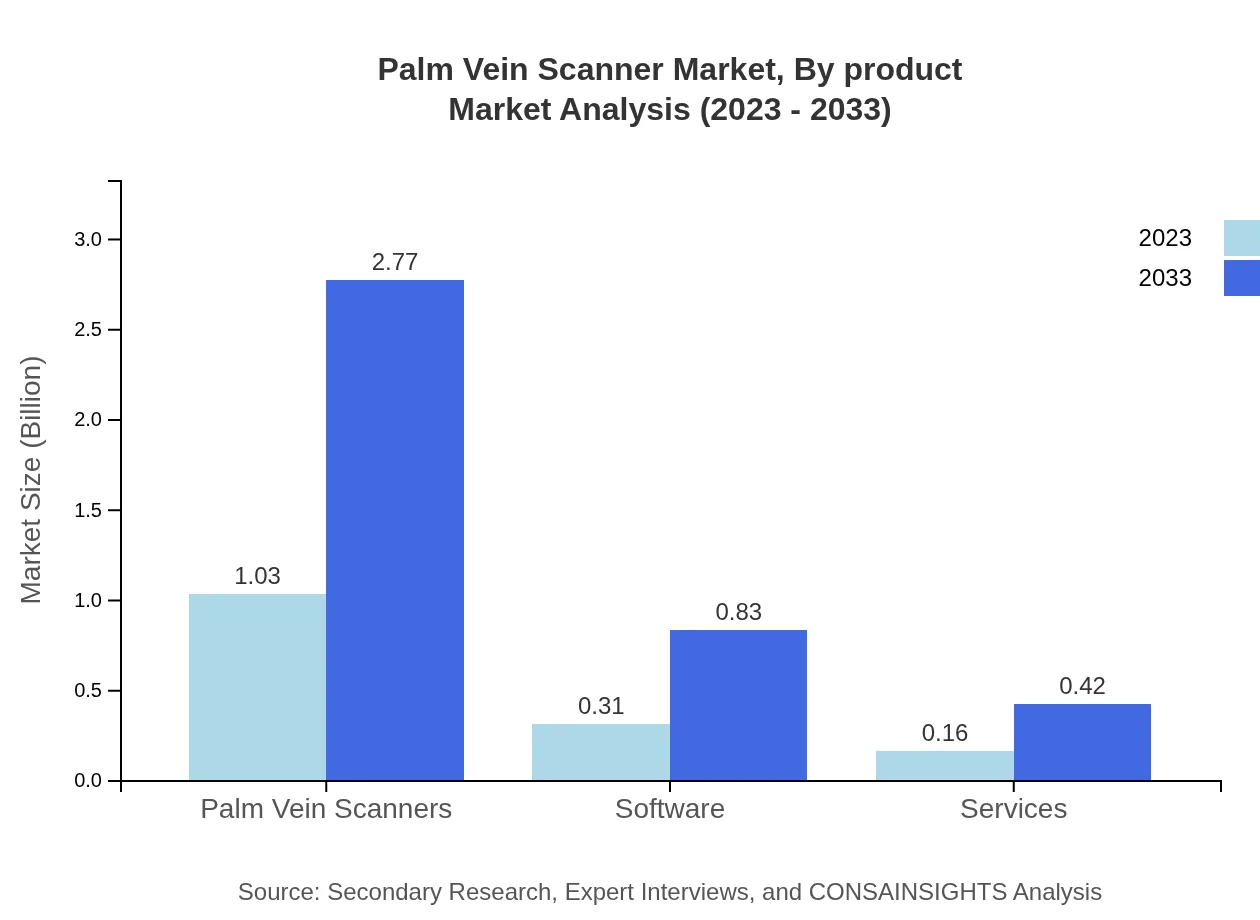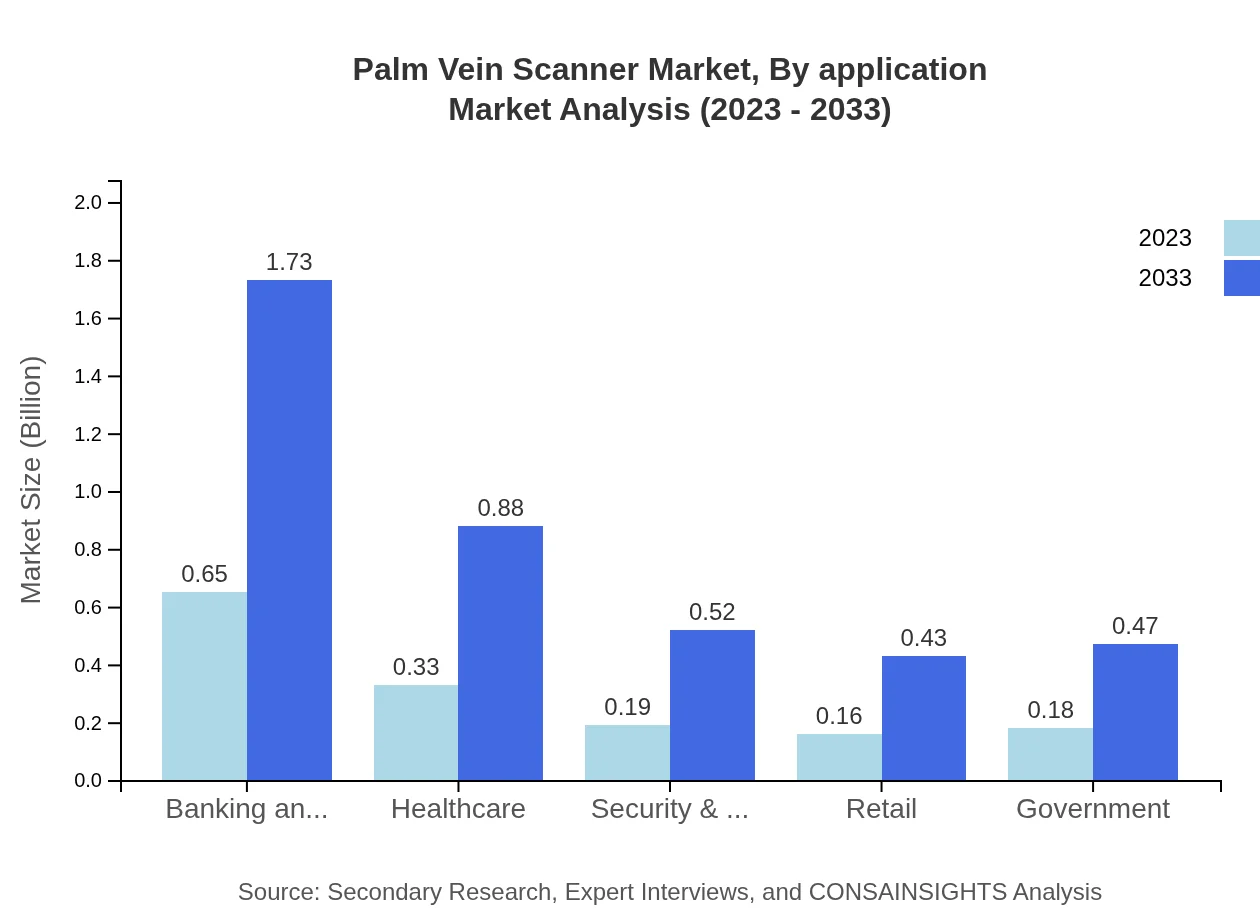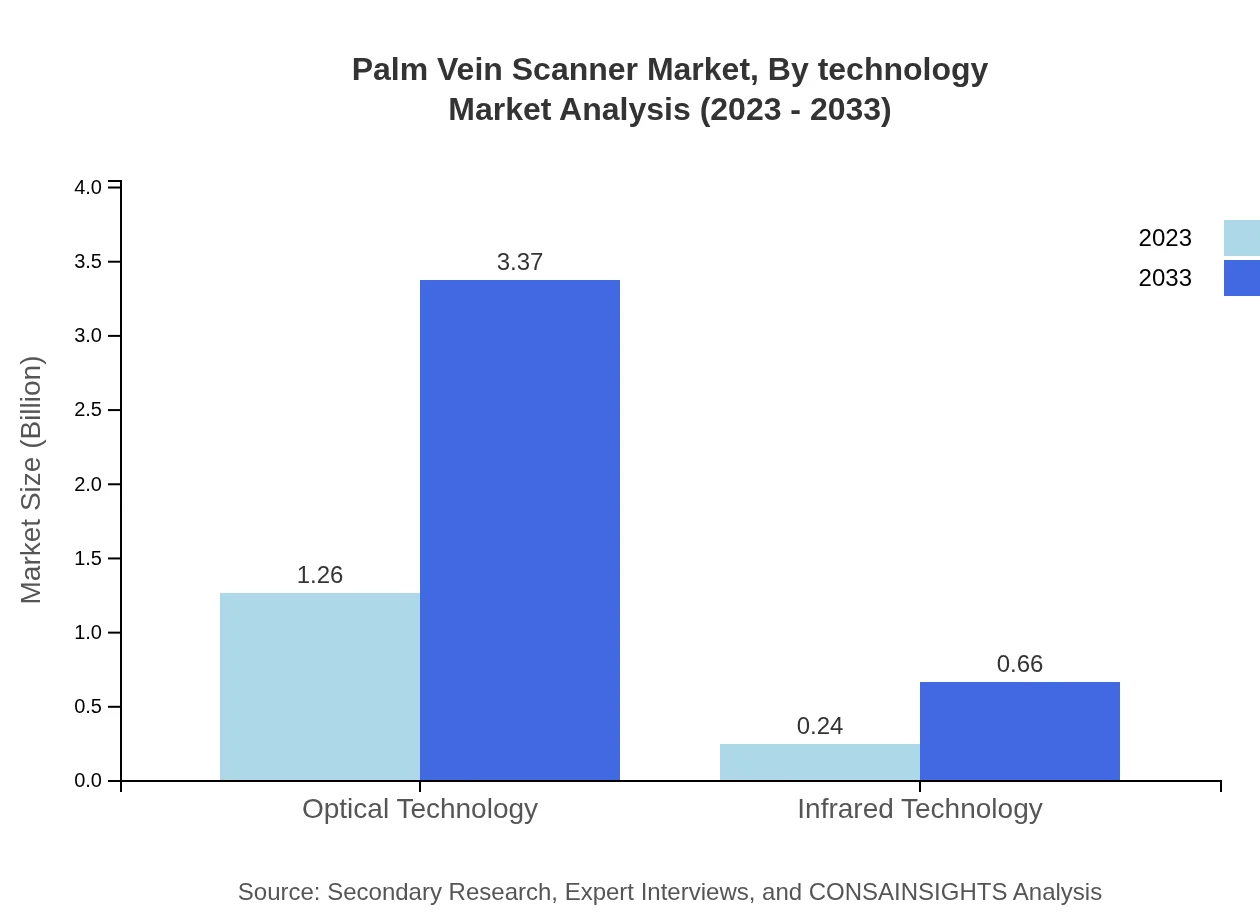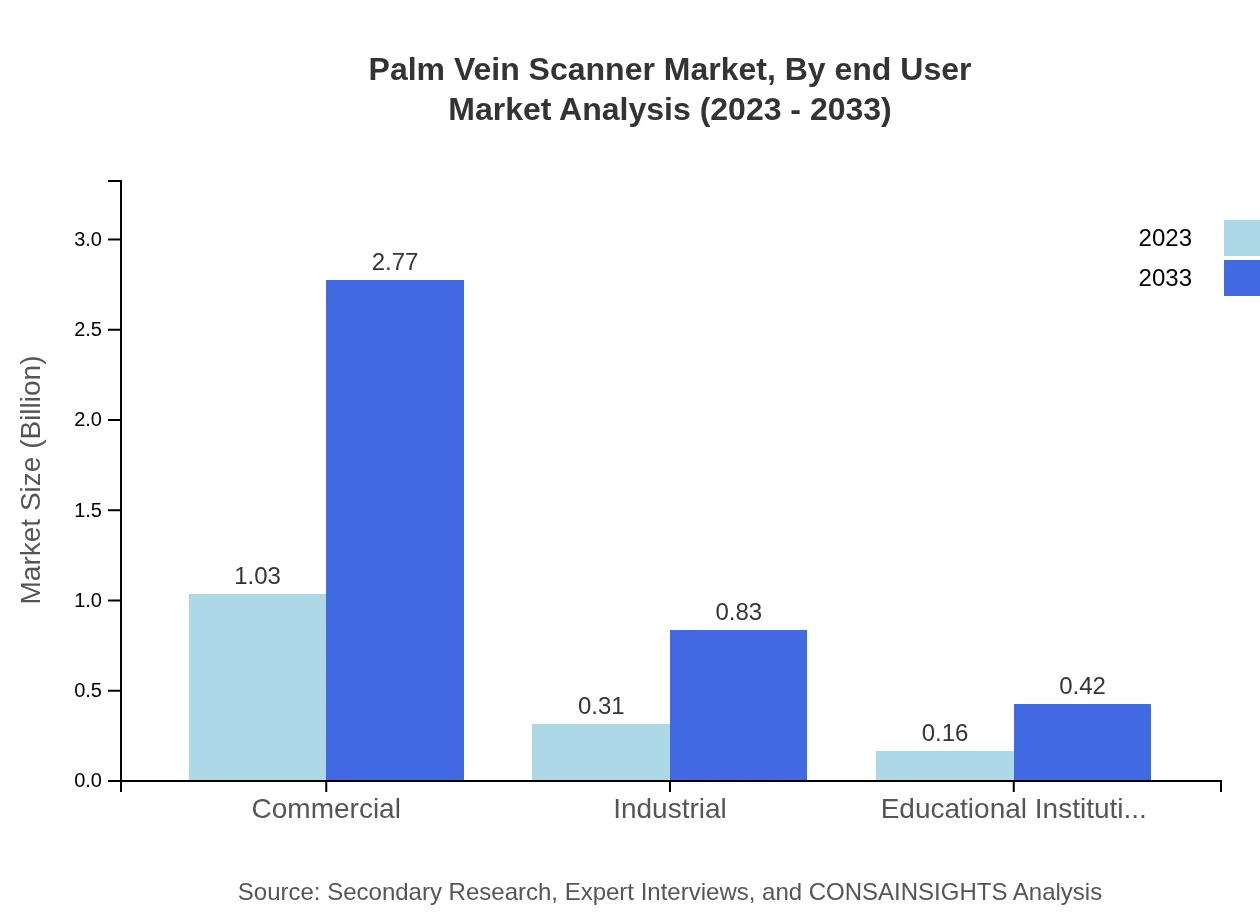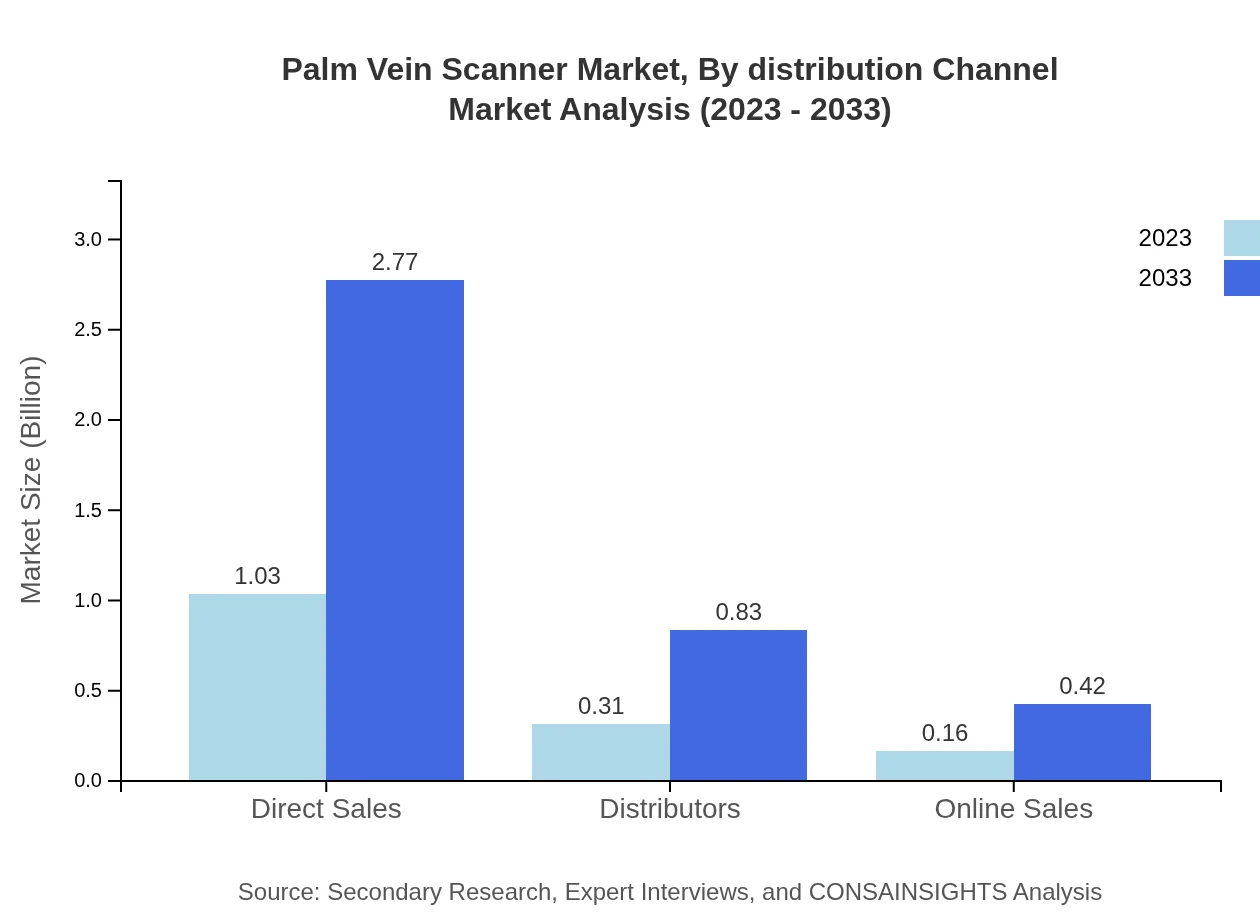Palm Vein Scanner Market Report
Published Date: 31 January 2026 | Report Code: palm-vein-scanner
Palm Vein Scanner Market Size, Share, Industry Trends and Forecast to 2033
This report provides a comprehensive analysis of the Palm Vein Scanner market from 2023 to 2033, examining market trends, regional insights, segmentation, and future forecasts based on extensive industry data and insights.
| Metric | Value |
|---|---|
| Study Period | 2023 - 2033 |
| 2023 Market Size | $1.50 Billion |
| CAGR (2023-2033) | 10% |
| 2033 Market Size | $4.03 Billion |
| Top Companies | Fujitsu, M2SYS Technology, NEC Corporation, IDEMIA |
| Last Modified Date | 31 January 2026 |
Palm Vein Scanner Market Overview
Customize Palm Vein Scanner Market Report market research report
- ✔ Get in-depth analysis of Palm Vein Scanner market size, growth, and forecasts.
- ✔ Understand Palm Vein Scanner's regional dynamics and industry-specific trends.
- ✔ Identify potential applications, end-user demand, and growth segments in Palm Vein Scanner
What is the Market Size & CAGR of Palm Vein Scanner market in 2023 and 2033?
Palm Vein Scanner Industry Analysis
Palm Vein Scanner Market Segmentation and Scope
Tell us your focus area and get a customized research report.
Palm Vein Scanner Market Analysis Report by Region
Europe Palm Vein Scanner Market Report:
The European market is anticipated to grow from 0.37 billion USD in 2023 to 1.00 billion USD by 2033. The growth is attributed to an increasing focus on security and regulatory compliance, especially in financial and governmental sectors, which demonstrates a preference for advanced biometric solutions.Asia Pacific Palm Vein Scanner Market Report:
In the Asia Pacific region, the Palm Vein Scanner market is projected to grow from 0.31 billion USD in 2023 to 0.84 billion USD in 2033. The increasing adoption of biometric technologies in countries like Japan, China, and India, along with major government initiatives seeking to enhance security measures, drives this growth.North America Palm Vein Scanner Market Report:
North America, leading the global market, will witness its Palm Vein Scanner market size grow from 0.54 billion USD in 2023 to 1.45 billion USD by 2033. High implementation rates in the banking and financial services sector, coupled with advancements in technology and increased consumer awareness about biometric authentication, foster this growth.South America Palm Vein Scanner Market Report:
The South American market for Palm Vein Scanners is expected to expand from 0.10 billion USD in 2023 to 0.27 billion USD by 2033. Increasing investments in security technologies and awareness of biometric advantages in criminal justice and corporate sectors significantly contribute to industry growth in this region.Middle East & Africa Palm Vein Scanner Market Report:
In the Middle East and Africa, the market is expected to rise from 0.17 billion USD in 2023 to 0.46 billion USD in 2033. Vulnerabilities in traditional security methods and the rising rate of identity fraud catalyze extensive investment in biometric technology, highlighting the importance of palm vein scanners.Tell us your focus area and get a customized research report.
Palm Vein Scanner Market Analysis By Product
The Palm Vein Scanner market is led mainly by scanners, which accounted for 68.88% of the market share in 2023 and is expected to maintain this level in 2033 with a size increasing from 1.03 billion USD to 2.77 billion USD. Software and services segments follow, showcasing potential for growth in deployment and support services.
Palm Vein Scanner Market Analysis By Application
The application segment notably is dominated by banking and financial services, holding 43.03% of the market share in 2023, with a projected rise to 1.73 billion USD by 2033. Security and access control, healthcare, and retail sectors also show robust growth trends due to rising consumer expectations for safety.
Palm Vein Scanner Market Analysis By Technology
Optical technology takes precedence in the market structure, representing approximately 83.71% of the revenue share in both 2023 and 2033. Innovations in infrared technology are setting the stage for growth, accounting for roughly 16.29% of the market insights indicating an upward shift toward diversification in technology offerings.
Palm Vein Scanner Market Analysis By End User
The end-user segment is characterized by a favorable shift towards industrial applications, with banking services leading the way, accounting for over 43% market share. Following are healthcare, security & access control, and retail industries contributing sizably to the growth forecast.
Palm Vein Scanner Market Analysis By Distribution Channel
The primary sales channels are direct sales, accounting for about 68.88% of the market in 2023 with projections suggesting continued dominance through 2033. Distributors and online sales channels are also expanding as e-commerce and technological solutions become favored.
Palm Vein Scanner Market Trends and Future Forecast
Tell us your focus area and get a customized research report.
Global Market Leaders and Top Companies in Palm Vein Scanner Industry
Fujitsu:
A leading provider known for its advanced palm vein authentication technology, serving multiple sectors including banking and healthcare.M2SYS Technology:
Offers comprehensive biometric solutions, including palm vein scanners, focusing on customized applications for a range of industries.NEC Corporation:
A pioneer in biometric authentication solutions, NEC specializes in secure identity verification systems using palm vein technology.IDEMIA:
A global leader in identity management solutions, IDEMIA integrates palm vein recognition into various security protocols globally.We're grateful to work with incredible clients.









FAQs
What is the market size of palm Vein Scanner?
The palm vein scanner market is projected to reach approximately $1.5 billion by 2033, growing at a CAGR of 10% from 2023 onwards. This growth is driven by the increasing demand for secure biometric identification solutions across various sectors.
What are the key market players or companies in the palm Vein Scanner industry?
Key market players in the palm vein scanner industry include Fujitsu, M2SYS Technology, and HID Global. These companies are at the forefront of developing advanced biometrics technologies, focusing on enhancing palm scanning solutions to meet evolving security needs.
What are the primary factors driving the growth in the palm Vein Scanner industry?
Growth in the palm vein scanner industry is driven by rising security concerns, technological advancements in biometrics, and increasing adoption in sectors like banking, healthcare, and retail. The emphasis on fraud prevention and secure access control further propels market expansion.
Which region is the fastest Growing in the palm Vein Scanner market?
The fastest-growing region for palm vein scanners is North America, projected to grow from $0.54 billion in 2023 to $1.45 billion by 2033. Europe and Asia Pacific also show significant growth potential, driven by rising technology adoption and security needs.
Does ConsaInsights provide customized market report data for the palm Vein Scanner industry?
Yes, ConsaInsights offers customized market report data tailored to specific needs within the palm vein scanner industry. This includes in-depth analyses, forecasts, and insights to help stakeholders understand market dynamics and make informed decisions.
What deliverables can I expect from this palm Vein Scanner market research project?
Expected deliverables include detailed market size reports, growth forecasts, competitive analysis, and segmentation insights. The report will also cover regional trends and key opportunities within the palm vein scanner market to aid strategic planning.
What are the market trends of palm Vein Scanner?
Current trends in the palm vein scanner market include increased integration of artificial intelligence, growth in mobile biometric solutions, and a focus on data privacy. Enhanced user experience and the adoption of contactless technologies are also becoming prevalent.

